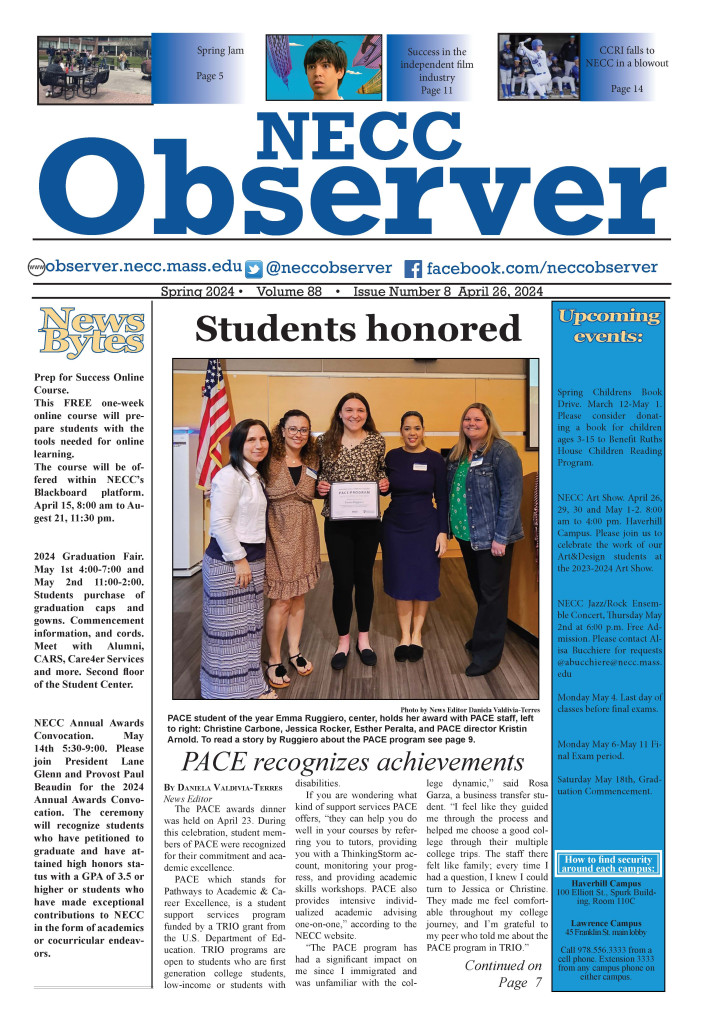NECC students and faculty believe having a balance between academics and mental health is important and having an emotional support animal on campus will help them thrive in finding that stability.
Mental health has become a popular topic in the U.S. that affects “approximately 77%” of college students according to The American College Health Association (ACHA). The ACHA also reported in a 2023 survey that college students are diagnosed with mental health conditions such as anxiety, depression and “Stressor-Related Disorders.”
An NECC student who wishes to remain anonymous because of this sensitive topic claims that “midterms or finals week may cause” their mental health conditions to be apparent.
Educational tasks like keeping up with “deadlines” or attending to personal matters plays a role in another NECC student’s life that sparks “tons of anxiety and stress.” Respectively, this student also wishes to remain anonymous because of this sensitive topic
“The same sort of stress that affects students can affect faculty” said NECC Counselor and Psychological Service Coordinator Gabriel Garcia.
In a National Library of Medicine article it is made clear that college faculty (professors and student success services) cannot go unrecognized because they are “principle [assets] of the educational process” in which “one-third” of this population deal with mental health conditions.
Academic Coach Amy Joyall explained her daily goal of “wanting to be accessible” to each student and finding a balance of “structure [for herself] and others” can be a root cause of mental health conditions.
Attending college can be a difficult transition for students and managing one’s workload can be an overwhelming task for faculty. Collectively, NECC students and faculty believe having an emotional support animal on campus will help take some weight off their shoulders.
The NECC students who both wish to remain anonymous expressed having an emotional support animal on campus would “uplift [their and other students’] mood, and [would help manage] stress levels.” In addition, the animal(s) “would help calm students and encourage” them to take a break from stressful situations.
As for faculty, emotional support animals allow people an opportunity to “break [the] momentum of a busy day” and spend it with a “non-judgemental” companion, said Joyall. She believes there is a “trade off [that] gives energy [and] connects people on campus” when spending time with an emotional support animal.

